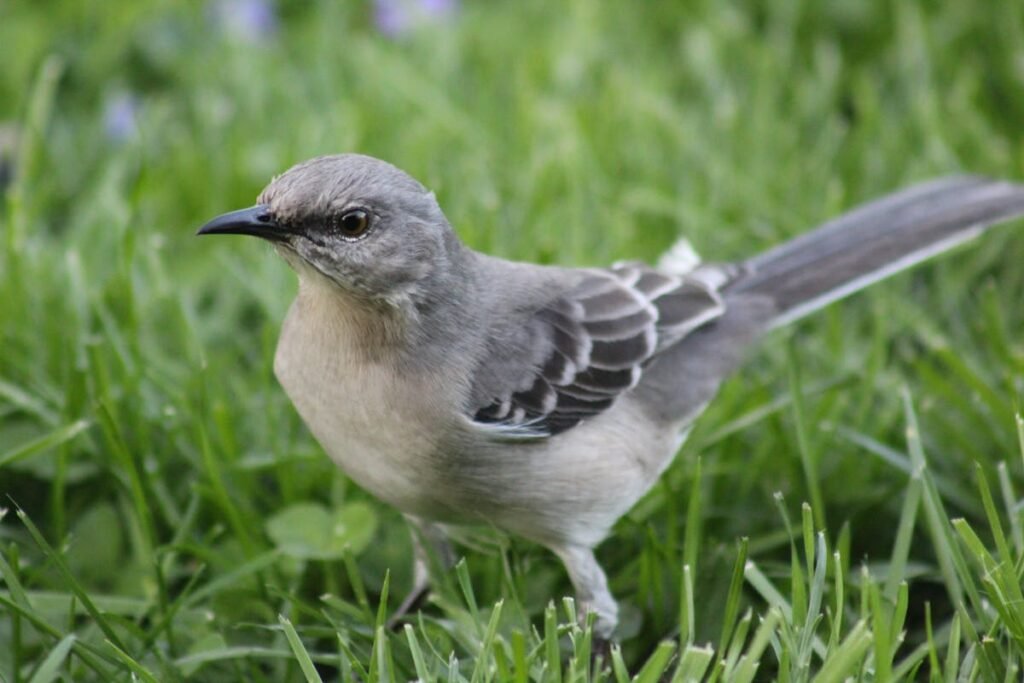There is something both mysterious and enchanting about a bird that decides to sing long after the world has gone quiet. Among the many songbirds, mockingbirds stand out for their unique habit of breaking the silence of the night with cheerful and sometimes relentless melodies. Unlike most birds that reserve their songs for the early dawn, the northern mockingbird fills the night air with music that can last for hours. For some, it is a lullaby; for others, a noisy interruption. But the question lingers—what drives a mockingbird to sing at night?
Mockingbirds sing at night for several fascinating reasons. Primarily, male mockingbirds are the culprits behind the nocturnal concerts, especially younger ones who are still searching for mates. Singing under the cover of darkness allows them to stand out when competition from other birds is low. In addition, their songs are a way of claiming territory, warding off rivals, and ensuring survival through recognition.
The Role of Territory and Mating
One of the strongest motivators for night singing is reproduction. A male mockingbird’s song is his love letter to potential mates. The louder, more complex, and more persistent his melody, the higher his chances of impressing a female. Night singing is essentially an extended advertisement of his presence, stamina, and genetic fitness. Additionally, the song doubles as a territorial warning—letting other males know that the area is already spoken for.
Mockingbird Song Patterns
Unlike many birds that repeat a single song, mockingbirds are natural mimics. Their repertoire may include whistles, chirps, and even imitations of car alarms or barking dogs. A single mockingbird can produce over 200 different song variations. At night, these patterns become especially captivating, as the bird seems to cycle endlessly through sounds, making it difficult to predict what comes next.
Biological Clock and Circadian Rhythms
Mockingbirds are influenced by natural rhythms. Their internal biological clock helps regulate when they feed, sleep, and sing. Interestingly, during breeding season, this clock shifts slightly, making them more active at night. This is why their nocturnal singing peaks in the spring and early summer when they are most desperate to find mates and secure nesting grounds.
The Science of Bird Communication
Birdsong is not random. Every sound carries meaning—whether it’s an alarm, a love song, or a simple declaration of presence. For mockingbirds, night songs expand their communication possibilities. With fewer competing sounds from other birds, their messages can travel farther and clearer. In essence, the nighttime hours become a less crowded stage where they can perform without interruption.
Why Males Sing More at Night
Male mockingbirds are far more vocal at night than females. This is largely due to hormones like testosterone, which spike during mating season. Their songs are also a way of outshining competitors. In the wild, the male who sings the loudest, longest, and most diversely is often the one who wins a mate.
Do Female Mockingbirds Sing at Night?
Female mockingbirds are generally quieter, especially at night. They may occasionally vocalize, but their role is more about evaluating the songs of males rather than performing themselves. When females do sing, it is often softer and less elaborate, used more for communication with their partners than for attracting attention.
Mockingbird Singing Seasons
Although mockingbirds sing year-round, nighttime concerts are most common during breeding season. From March to August, their songs are more frequent and intense. Outside of this period, they still sing occasionally at night, but the drive behind the melodies is far less urgent.
Influence of Artificial Light
City lights play an unexpected role in encouraging mockingbirds to sing at night. In brightly lit areas, their natural circadian rhythms can be disrupted, leading them to mistake artificial light for extended daylight. As a result, urban mockingbirds often sing later and louder than their rural counterparts.
Mockingbird Intelligence and Mimicry
Mockingbirds are celebrated for their ability to mimic other sounds. From other bird species to mechanical noises, their mimicry skills are unmatched. Scientists believe this talent helps them expand their song library, making them more attractive to potential mates. At night, when fewer birds are active, their mimicry shines through, making their performances even more remarkable.
Are Night Songs a Sign of Distress?
Some people wonder if a mockingbird sings at night because it is stressed or in trouble. While excessive singing can sometimes signal disturbance—such as the presence of predators or constant human noise—most nighttime singing is perfectly normal and tied to mating and territory defense.
Comparisons With Other Nocturnal Singers
Mockingbirds are not alone in their nighttime serenades. Nightingales, whip-poor-wills, and even crickets share the same habit. However, mockingbirds stand out because of their extraordinary variety of sounds. While a nightingale may charm with one haunting tune, the mockingbird delivers an entire concert of changing melodies.
Cultural and Literary Symbolism
Mockingbirds hold a special place in human imagination. In literature, they often symbolize innocence, purity, and creativity. Harper Lee’s famous novel To Kill a Mockingbird immortalized the bird as a symbol of harmless beauty that should never be destroyed. Their nighttime songs, therefore, take on a deeper meaning—an emblem of resilience, inspiration, and natural artistry.
The Psychology of Birdsong
For humans, the sound of a bird singing at night can be both soothing and frustrating. While some enjoy the lull of melodic notes before sleep, others find it intrusive. Interestingly, studies have shown that birdsong can improve mood, reduce stress, and even boost concentration. Mockingbirds, therefore, may unknowingly contribute to mental well-being.
Mockingbirds in Urban vs. Rural Areas
Urban mockingbirds often sing louder and longer than rural ones. The constant background noise in cities pushes them to raise their volume. Additionally, city lights extend their singing hours. In rural areas, mockingbirds tend to follow a more natural cycle, singing mainly at dawn and dusk, with fewer nighttime performances.
Can Mockingbird Songs Be a Nuisance?
Not everyone enjoys a mockingbird’s nighttime symphony. Their persistent singing can keep light sleepers awake, leading to complaints. However, most experts advise against disturbing or harming the bird. Instead, solutions like closing windows, using white noise machines, or adjusting lighting can help reduce nighttime disturbances.
How to Attract Mockingbirds Without Noise Problems
If you love mockingbirds but want to avoid sleepless nights, you can make your garden bird-friendly without inviting them too close to your bedroom windows. Planting berry-producing shrubs, providing water sources, and minimizing pesticides can draw them in. At the same time, positioning these attractions farther from your home can strike a balance between enjoying their presence and maintaining peace.
Protecting Mockingbird Habitats
Mockingbirds are not endangered, but habitat destruction poses a risk to their long-term survival. Protecting native trees and shrubs, reducing pesticide use, and maintaining green spaces are vital for ensuring that mockingbirds—and their songs—continue to enrich our nights.
Also read: Fast 2K Fence Post Foam: The Ultimate Guide to Stronger and Faster Fence Installation
FAQs
Why does a mockingbird sing all night long?
Mockingbirds sing at night mainly to attract mates and establish territory, especially during breeding season.
Is a mockingbird singing at night normal?
Yes, it is perfectly normal behavior, particularly for young male mockingbirds in spring and summer.
Do mockingbirds only mimic other birds?
No, they can imitate a wide range of sounds including frogs, insects, and even man-made noises like car alarms.
How long can a mockingbird sing at night?
Some mockingbirds sing for hours without pause, cycling through dozens of different song patterns.
Are mockingbirds more active in cities?
Yes, urban mockingbirds tend to sing louder, longer, and later due to artificial light and noise.
Can I stop a mockingbird from singing at night?
Directly stopping a mockingbird is not recommended. Instead, use soundproofing methods or reduce outdoor lighting to discourage excessive singing.
Conclusion
So, why does a mockingbird sing at night? The answer is a mix of biology, behavior, and environment. Their songs are tools of survival, messages of love, and declarations of territory. At the same time, they serve as natural performances that connect humans to the rhythms of the wild. While some may grumble at the midnight music, others recognize it as a gift—an extraordinary reminder of the beauty and complexity of life that never truly sleeps.



